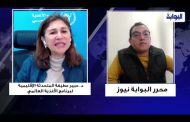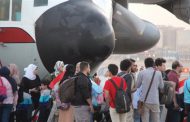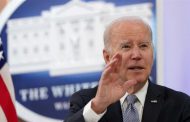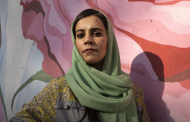Ethiopian authorities have launched reprisals against ethnic Tigrayans across the country, arresting hundreds and accusing members of the minority group of supporting rebels who have been locked in a bloody war with the government of Prime Minister Abiy Ahmed.
Mr. Ahmed declared war on Tigray, a mountainous region that borders Sudan and Eritrea, in November, after his government said the Tigray People’s Liberation Front, or TPLF, had attacked an Ethiopian military base. The fighting followed months of rising tensions between the central government and the TPLF, which had dominated Ethiopia’s ruling party until Mr. Ahmed’s rise to power in 2018.
In recent weeks, the government has arbitrarily arrested hundreds of ethnic Tigrayans outside the dissident northern region, keeping some in military detention camps, rights groups and former detainees say.
The arrests of ethnic Tigrayans in Ethiopia’s capital, Addis Ababa, and other parts of the country have accelerated since government troops suffered a stinging defeat against the TPLF in late June, according to Amnesty International, the Ethiopian Human Rights Commission and other international and local rights groups.
On Tuesday, Mr. Ahmed urged “all capable Ethiopians” to take up arms against the TPLF, a call that could bring an end to a cease-fire declared by the government for the Tigray conflict in late June and could presage fresh hostilities in the region and beyond.
A rally against Tigray’s separatists took place last month in Addis Ababa, where authorities have been told to closely monitor ethnic Tigrayans.
The detentions are another sign of how the war in Tigray—where the U.S. has said the government and its allies are carrying out ethnic cleansing—is rippling across the rest of Ethiopia, Africa’s second-most populous nation after Nigeria and long a linchpin of stability in the volatile Horn of Africa region.
Since then, the United Nations, the U.S. and other Western countries have accused government troops, who are fighting alongside soldiers from Eritrea and militias from other parts of Ethiopia, of committing atrocities against civilians and destroying hospitals and other critical infrastructure. While Western officials say all parties of the conflict have committed human-rights violations, they say Mr. Ahmed’s government is now preventing humanitarian aid to millions of people in the region who are now on the brink of famine. In a report released Tuesday, Amnesty said government-affiliated fighters were using rape and other sexual violence as a weapon of war in Tigray.
The government denies that it has deliberately attacked civilians or is carrying out ethnic cleansing. It has said it is investigating allegations of sexual violence. It has also accused TPLF fighters of committing atrocities against members of other ethnicities, a charge that the group denies.
Captured Ethiopian troops were marched through the Tigrayan capital, Mekelle, in early July after the TPLF regained control of the city.
PHOTO: ASSOCIATED PRESS
Now, Tigrayans and rights groups say the government is pursuing members of the ethnic group, which makes up around 5% of Ethiopia’s population, in other parts of the country, too.
In interviews, Tigrayans said Ethiopian police had detained them, accused them of supporting the TPLF and threatened to take them to detention centers outside the capital. There, former detainees and researchers at Amnesty International say, hundreds of Tigrayans are being kept without due process, with little food and water and in unsafe sanitary conditions.
Haile Fekadu, a construction worker in Addis Ababa, said police entered a popular neighborhood restaurant on July 6, and, after checking diners’ identity cards, detained him and several other customers at a police station for three days.
Mr. Fekadu said he was put in a cell crowded with more than a dozen other men and accused by officers of supporting the TPLF, a charge he denies.
“At the police station, everyone was speaking Tigrinya,” said Mr. Fekadu said, referring to the Tigrayan language. The 26-year-old said he was released after seeking help from a relative who is a police officer. Mr. Fekadu has since fled Ethiopia to neighboring Sudan. “I am lucky to be out. Many others are still in jail,” he said.
Mr. Ahmed’s spokeswoman, Billene Seyoum Woldeyes, said authorities are pursuing suspected TPLF operatives of various ethnicities as Ethiopia remains under high security alert due to the war. “To assume that crackdowns against the TPLF and their operatives [are] against the people of Tigray is to disregard the context and understanding of the country,” Ms. Woldeyes said in an emailed statement. “The government does not equate TPLF with the People of Tigray.”
Rights groups and Western diplomats say attacks against civilians in Tigray and other parts of Ethiopia have continued since the Ethiopian government declared a unilateral cease-fire on June 29, when TPLF fighters won back the Tigrayan capital, Mekelle. Last week, Sudanese officials reported dozens of bodies floating across their border on a river from Tigray. Some of the corpses had gunshot wounds, while others had their hands bound, the officials said.
Mr. Ahmed’s office said reports of the bodies were “fake news,” spread by the TPLF to discredit his government.
In an address to the nation on July 18, Mr. Ahmed referred to the TPLF as a “cancer” and “invasive weed” that “will be uprooted, never to grow again.” A few days earlier, Dagnachew Assefa, a security adviser to the prime minister, said on local television that authorities should closely monitor Tigrayans in Addis Ababa and drew comparisons to the Ethiopian-Eritrean war, when Eritreans were registered and deported from the capital.
The sharpening of official rhetoric against Tigrayans and the TPLF has prompted warnings from foreign officials, including the U.N.’s special adviser on the prevention of genocide, that such language could fuel ethnic tensions or even violence.
Last week, Samantha Power, head of the U.S. Agency for International Development and former U.S. ambassador to the U.N., said that “dehumanizing rhetoric…only hardens tensions and can, and historically, certainly, often accompanies ethnically motivated atrocities.”
Tigrayans in Addis Ababa, who like all Ethiopians have their ethnicity marked in their identity cards, say they are afraid of speaking Tigrinya in public in the wake of the arrests. In interviews, some said they are considering moving to Tigray.
Others, including political activists, say they have been prevented from boarding flights to leave Ethiopia at Addis Ababa’s Bole International Airport.
Hiwote, an Addis Ababa truck driver who asked to be identified only by his first name, said he was on his way home with his brother following a delivery in early July when officers flagged them down at a checkpoint. After inspecting their identity cards, he said, officers detained the two men at a police station. He and his brother were released without charges after paying officers about $80 in bail and bribes.
“Police are combing every corner of Addis Ababa looking for Tigrayan people,” said Hiwote. Since his arrest, the 40-year-old father of three said, he hasn’t left his home to work or shop for groceries. “I know I can’t be in hiding forever, but I don’t want to be arrested again,” he said.
Another former detainee said he was arrested at his garment store in Addis Ababa in early July, along with two of his workers. After being held overnight in the capital, he said, they were taken to a military base in Awash Sebat in the eastern state of Afar.
Confined behind a chain-link fence and razor wire, more than 150 inmates, all ethnic Tigrayans, slept in the open and shared a single pit latrine while guards patrolled with AK-47s, he said. Inmates had just one meal a day and little access to drinking water, the former detainee said.
He said he was freed after his wife, a member of the Amhara ethnic group, used connections in the military to secure his release. “The temperatures become so hot especially during the day,” he said. “It’s my worst experience.”








































admin in: How the Muslim Brotherhood betrayed Saudi Arabia?
Great article with insight ...
https://www.viagrapascherfr.com/achat-sildenafil-pfizer-tarif/ in: Cross-region cooperation between anti-terrorism agencies needed
Hello there, just became aware of your blog through Google, and found ...